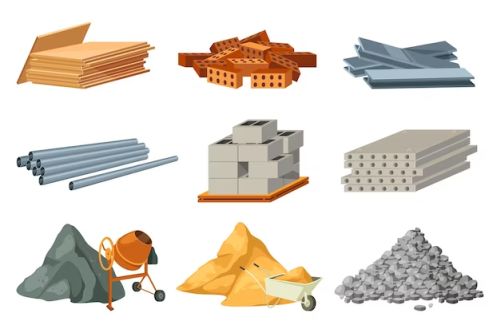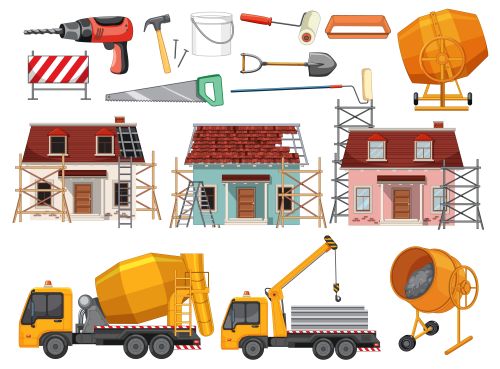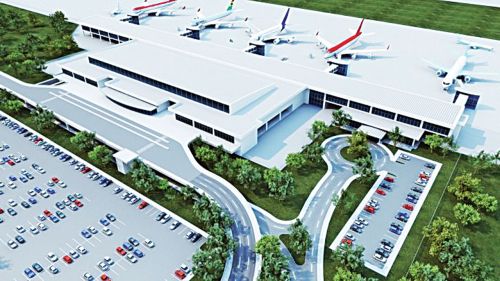The building and construction industry in Ghana has in recent years seen an uptick in growth. With Ghana’s growth
currently exceeding 30 million people and booming city life, the demand for housing and infrastructure development is on the ascendancy.
The industry has also attracted scores of foreign partnerships and investments over the years, bringing about some of the most complex residential and commercial edifices in town today.
In this post, we take a closer look at the construction industry in Ghana, touching on some challenges, opportunities
and success stories.
Need a professional builder for your project? Call now 0243174009
An Overview of the Building and Construction Industry in Ghana
Ghana’s economic growth is directly tied to a number of sectors of which building and construction are no exception. It employs a significant number of people in the field of building and structural engineering, and architectural services, among several skilled workers.
This is also the sector that forms the source of income for countless unskilled workers across the country. Apart from employing these individuals, it also provides shelter and infrastructure needs for Ghana.
Legal Framework for Building and Construction Services
Several laws and regulations govern the building and construction industry in Ghana. This includes the Building Regulations, 1996 (LI 1630) as well as the National Building Code, 2018.
Whether it is a commercial or residential facility, these laws provide the appropriate guidelines regarding the design of the structure, the construction process as well as maintenance.
When it comes to regulatory bodies, the institutions that play key roles include the Ghana Standards Authority, the Building and Road Research Institute, and the Environmental Protection Agency (EPA).
Types of Building and Construction Services
Ghana’s building and construction industry fall under four main categories: residential, commercial, industrial, and infrastructure. Houses, apartments, and other similar facilities fall under the residential category.
Commercial construction includes the building of offices, hotels, shopping malls, and other commercial-oriented facilities.
The industrial category includes the construction of factories, warehouses, and others built for industrial purposes.
Roads, airports, bridges, and other such public facilities form the infrastructure services.
Building and Construction Materials

Ghana is blessed with a wide variety of materials for building purposes. This includes different types of wood, sand, and other raw materials. Other widely used building materials in Ghana include steel, cement, bricks, and aggregates.
A number of sustainable and environmentally-friendly materials like bamboo, recycled plastics, and compressed earth blocks are being explored. With the increasing development of technology, 3D printing, and other smart materials can be found in the Ghanaian building and construction market today.
Building and Construction Process
Different builders may approach the building process in different forms. However, the process in Ghana can be divided into four stages. These include the design, site preparation, and foundation.
The rest are structural works and finishing. At the design stage, activities include concept design and the acquisition of the necessary permits and approvals from the appropriate authorities.
Once this is achieved, it paves the way for the preparation of the site, which involves laying the foundation for the construction. What follows next is the structural works which involve constructing structures such as walls, beams, and columns while fixtures and fittings like windows, doors, and flooring come at the finishing stage.
Building and Construction Equipment

Depending on the type of project, the topography of the land, and the design of several pieces of equipment will be required.
This may include excavators, cranes, bulldozers, and concrete mixtures among others. For a simple, residential building, basic materials like a pickaxe, shovel, and others might be used.
With the advancement of technology, drones are being employed for monitoring purposes, with Building Information
Modeling (BIM), being employed for project management purposes. Several foreign materials are also imported to augment the local ones.
Building and Construction Cost and Pricing
Several factors affect the cost of building and construction in Ghana. Due to the dependence on imported materials in the building sector and the weakness of the Ghana cedi, builders spend more in procuring these materials,
increasing the cost component.
Apart from the cost of materials, the building can be labour-intensive, increasing the cost. The other factors can be
the location of the project as well as the size of it. To ensure profitability, pricing must be carefully done.
Building and Construction Safety and Quality Control
Safety and quality control are nonnegotiable in the building industry anywhere in the world. A poorly constructed
building can lead to catastrophic consequences. Sadly, buildings have collapsed for these reasons.
This has propelled industry players to adopt various best practices including the Occupational Safety and Health Administration (OSHA), standards and regulations, and guidelines provided by the Ghana Institution of Engineers toward achieving high safety standards in the industry by issuing certificates for quality control.
Building and Construction Success Stories

Ghana may not have chalked feats like the Beij Kalifa in the UAE but has seen a significant improvement over the years. Several complex edifices have sprung up in the major cities of the country including the Terminal 3 project at
Kotoka International Airport, completed in 2018.
The result of this project is improved capacity and service efficiency. The 2,325-acre Appolonia City project, with a mix of residential, commercial, and industrial use is another impressive feat.
Building and Construction Challenges and Opportunities
Despite the growth of the industry, there are still a lot of major challenges for industry players. Access to finance is still a problem. Infrastructure is inadequate with a big gap when it comes to highly skilled labour.
Be that as it may, the future is not all gloomy. The industry is open to partnerships, different financial models one can explore, and a big opportunity for innovation in terms of sustainable materials and solution-oriented structural designs.
FAQs
What are the main types of building and construction services in Ghana?
They are residential, commercial, industrial as well as infrastructure.
What are the legal frameworks for building and construction services in Ghana?
They are the Building Regulations, 1996 (LI 1630) and the National Building Code, 2018
What are the latest trends and innovations in building and construction materials?
This includes the use of smart materials and nanomaterials as well as 3D technologies.
Also read: Reliable Air Conditioning Service in Ghana from the Experts
Conclusion
There’s no doubt about the importance of the building and construction industry in the Ghanaian economy. We have seen an overview of the industry, the legal framework within which the industry operates, common materials, and types of equipment among other related issues.
We have also discovered some of the challenges of the industry as well as the huge opportunities available. If you were thinking of venturing into the industry, this should give you a head start.
Need a building and construction expert for your project? Call now 0243174009


